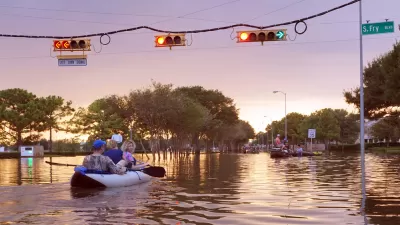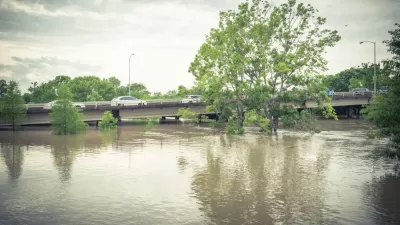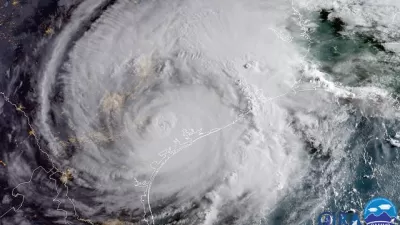Comparing Houston in 2010 to the city today reveals a variety of transportation, infrastructure, and economic changes.

The Kinder Houston Area Survey, conducted annually over the last 38 years, offers useful insight into how Houston has evolved and changed over the last decade. "It’s an important and unique historical record of time and place allowing for longitudinal analyses of the city and surrounding region," writes Andy Olin.
Over the 2010s, Houston expanded its bus and light rail networks, and it launched a bikeshare program in 2012. Support for public transit has grown since 2010, when just over half of respondents to the survey said that transportation funding should go toward public transit. In 2018, 61 percent "said a mass transit system is 'very important' to the future success of Houston," reports Olin.
Houston has more green space now, including a number of upgrades to and expansions of the city’s parks and hiking and biking trails. Public opinion about climate change has shifted as well, particularly after the city was devastated by Hurricane Harvey in 2017. "[In 2010,] only 39% of survey participants saw the threat of climate change as a 'very serious problem.' By 2019, that proportion grew to 53%," writes Olin.
While the Houston economy is relatively strong and unemployment has dropped in the last decade, poverty and economic hardship continue to be issues, says Olin. "Support for government programs to address inequalities in America has risen steadily in the past decade. The proportions who agree the government should take action to reduce income differences went from 45% in 2010 to 66% in 2018."
FULL STORY: How Houston has changed — and stayed the same — in the past 10 years

Alabama: Trump Terminates Settlements for Black Communities Harmed By Raw Sewage
Trump deemed the landmark civil rights agreement “illegal DEI and environmental justice policy.”

Study: Maui’s Plan to Convert Vacation Rentals to Long-Term Housing Could Cause Nearly $1 Billion Economic Loss
The plan would reduce visitor accommodation by 25% resulting in 1,900 jobs lost.

Planetizen Federal Action Tracker
A weekly monitor of how Trump’s orders and actions are impacting planners and planning in America.

Wind Energy on the Rise Despite Federal Policy Reversal
The Trump administration is revoking federal support for renewable energy, but demand for new projects continues unabated.

Passengers Flock to Caltrain After Electrification
The new electric trains are running faster and more reliably, leading to strong ridership growth on the Bay Area rail system.

Texas Churches Rally Behind ‘Yes in God’s Back Yard’ Legislation
Religious leaders want the state to reduce zoning regulations to streamline leasing church-owned land to housing developers.
Urban Design for Planners 1: Software Tools
This six-course series explores essential urban design concepts using open source software and equips planners with the tools they need to participate fully in the urban design process.
Planning for Universal Design
Learn the tools for implementing Universal Design in planning regulations.
Caltrans
Smith Gee Studio
Institute for Housing and Urban Development Studies (IHS)
City of Grandview
Harvard GSD Executive Education
Toledo-Lucas County Plan Commissions
Salt Lake City
NYU Wagner Graduate School of Public Service





























